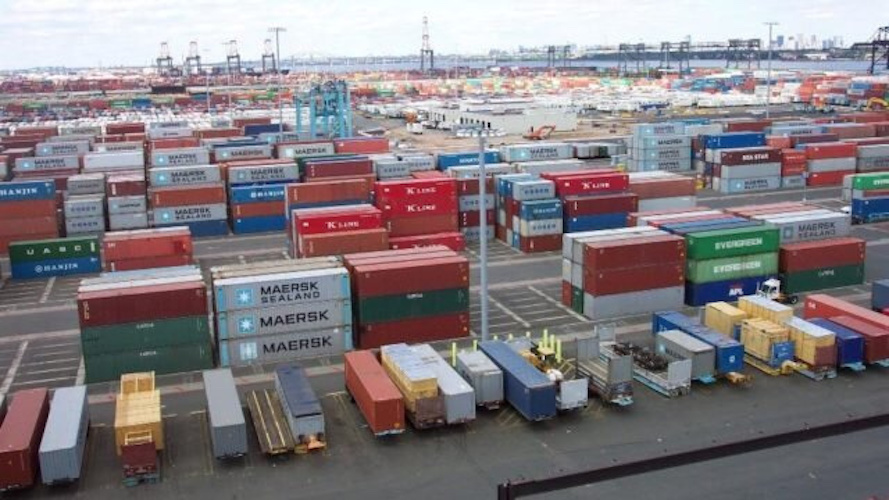
A wave of opposition has greeted the recent decision by the Nigeria Customs Service (NCS) to impose a 4% administrative charge on the Free-on-Board (FOB) value of imports, alongside the Nigerian Ports Authority’s (NPA) proposed 15% increase in port charges. Business leaders and policymakers have strongly criticized these measures, warning of their dire consequences on the economy.
The Nigeria Employers’ Consultative Association (NECA), the Manufacturers Association of Nigeria (MAN), and former Senate President Bukola Saraki have all voiced concerns, calling for the immediate suspension of the new charges. They argue that the policies are ill-timed, counterproductive, and detrimental to businesses and consumers alike.
NECA described the NCS levy as a desperate attempt to meet its ambitious N10 trillion revenue target for 2025. The association warned that this charge would extract N2.84 trillion from private businesses and drive up import duties by 80%, significantly increasing costs for industries.
Similarly, MAN urged the NPA to reconsider its proposed 15% hike in port charges, stressing that it contradicts the federal government’s commitment to improving the ease of doing business in Nigeria. The association warned that the move would further burden manufacturers already struggling with high operating costs, forex volatility, and rising energy expenses.
Saraki, in his reaction, lambasted the NCS for implementing a policy that would ultimately impoverish Nigerians. He pointed out that the additional cost burden on importers would inevitably be passed on to consumers, exacerbating inflation and worsening economic hardship.
NECA’s Director General, Adewale-Smatt Oyerinde, stated that the new levy undermines the federal government’s ongoing tax reform efforts led by the Presidential Fiscal Policy and Tax Reforms Committee. He emphasized that Nigeria’s business environment is already grappling with multiple taxation issues, unpredictable policies, and mounting economic challenges. Adding another layer of financial burden, he warned, would stifle business growth, discourage investments, and lead to job losses.
“With Nigeria’s annual imports valued at N71 trillion, the newly introduced levy will impose an additional N2.84 trillion in costs,” Oyerinde noted. “For industries reliant on imported raw materials, this translates to an 80% increase in duty payments, which will drive up production costs, weaken competitiveness, and ultimately push inflation higher.”
He further criticized the NCS for prioritizing revenue generation over trade facilitation, arguing that such an approach contradicts the federal government’s Ease of Doing Business agenda. NECA, therefore, urged an immediate reversal of the levy and called for extensive stakeholder engagement to develop a more business-friendly approach to revenue generation.
MAN’s Director General, Segun Ajayi-Kadir, echoed similar concerns regarding the NPA’s 15% port charge hike. He described the proposal as ill-advised, noting that it comes at a time when businesses are grappling with soaring costs and economic uncertainties.
“Nigeria’s economic climate is already fraught with challenges, from inflation to foreign exchange instability and high energy costs,” Ajayi-Kadir said. “Increasing port tariffs now will only deepen these problems, making Nigerian manufacturers less competitive and pushing businesses to consider alternative ports in neighboring countries.”
He warned that the proposed increase could encourage cargo diversion, reduce government revenue, and promote smuggling, ultimately weakening the economy. He also pointed out that higher port-related costs would drive up production expenses for manufacturers, leading to inflationary pressures and reduced competitiveness of local goods.
Instead of increasing port charges, MAN suggested that the government should focus on streamlining port operations, reducing vessel turnaround times, and addressing bureaucratic delays in cargo clearance. By improving efficiency, the government could generate more revenue naturally without placing an additional financial strain on businesses.
MAN further stressed that increasing port tariffs at this time would be detrimental to the manufacturing sector, contradicting the government’s efforts to position Nigeria as a regional trade hub. The association urged the NPA to reconsider its stance and collaborate with stakeholders to explore more sustainable revenue-generation strategies.
Meanwhile, Saraki, in his remarks, condemned the 4% levy imposed by the NCS, describing it as an ill-conceived policy that would further strain the already stretched financial capacity of Nigerians.
In defense of the new charge, the NCS claimed that the levy was in line with the Nigeria Customs Service Act (NCSA) 2023 and was necessary for the agency’s efficient operation. The service insisted that the charge was introduced following extensive consultations with stakeholders and urged compliance from all importers.
Despite this justification, industry stakeholders remain adamant that these policy changes will have far-reaching negative effects. They continue to call for their reversal, warning that failure to do so will stifle economic growth, escalate production costs, and place additional strain on Nigerian businesses and consumers.



